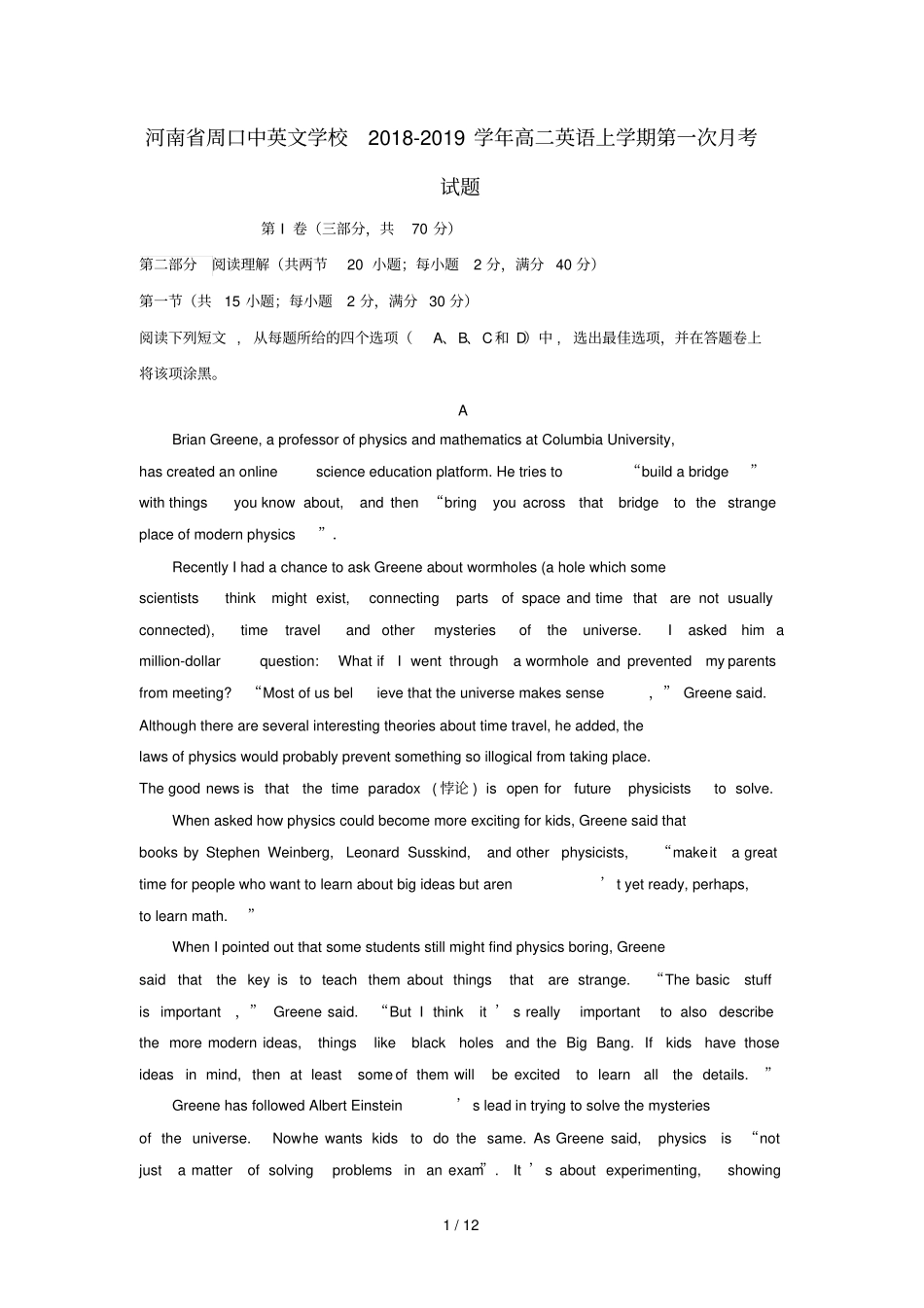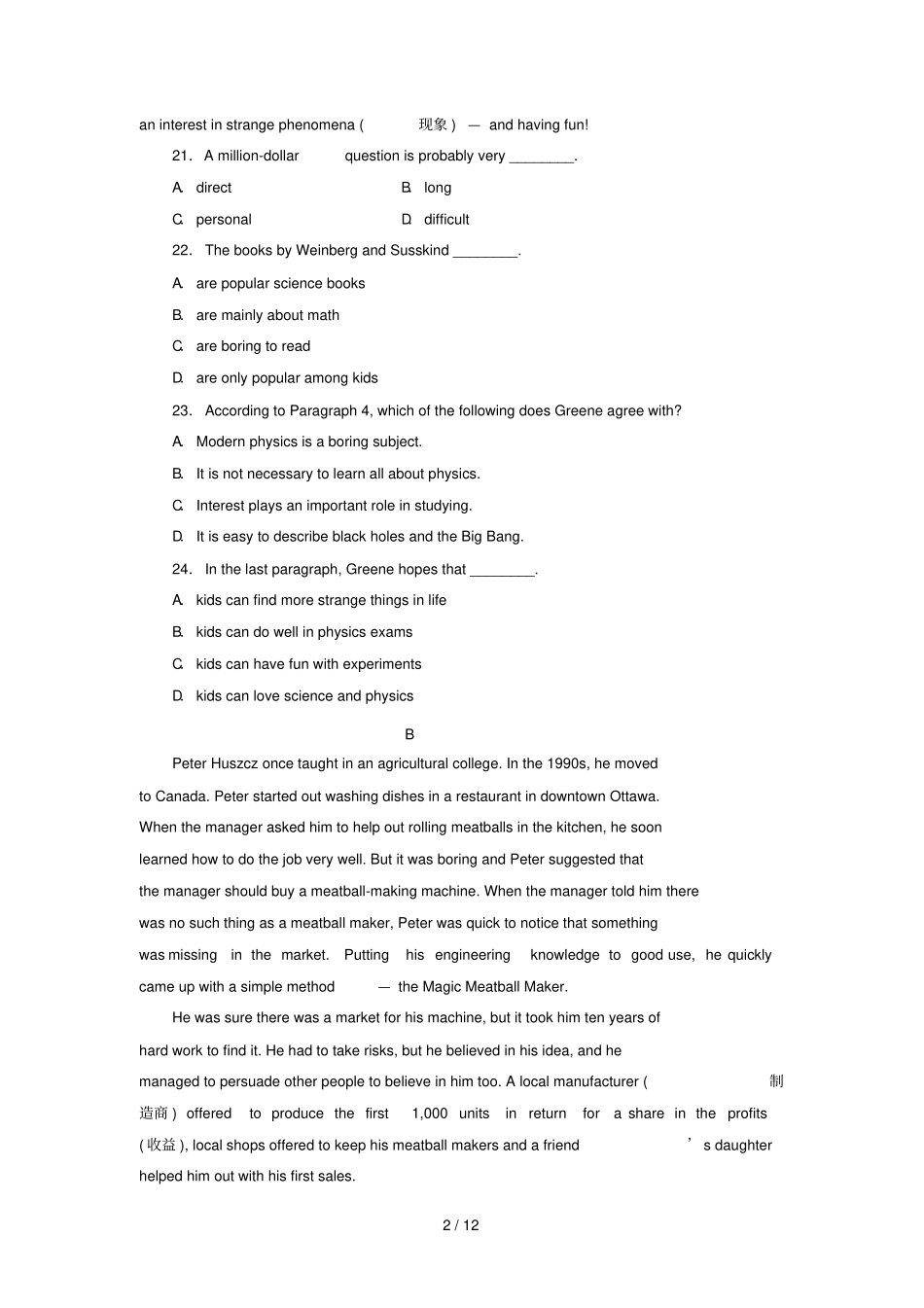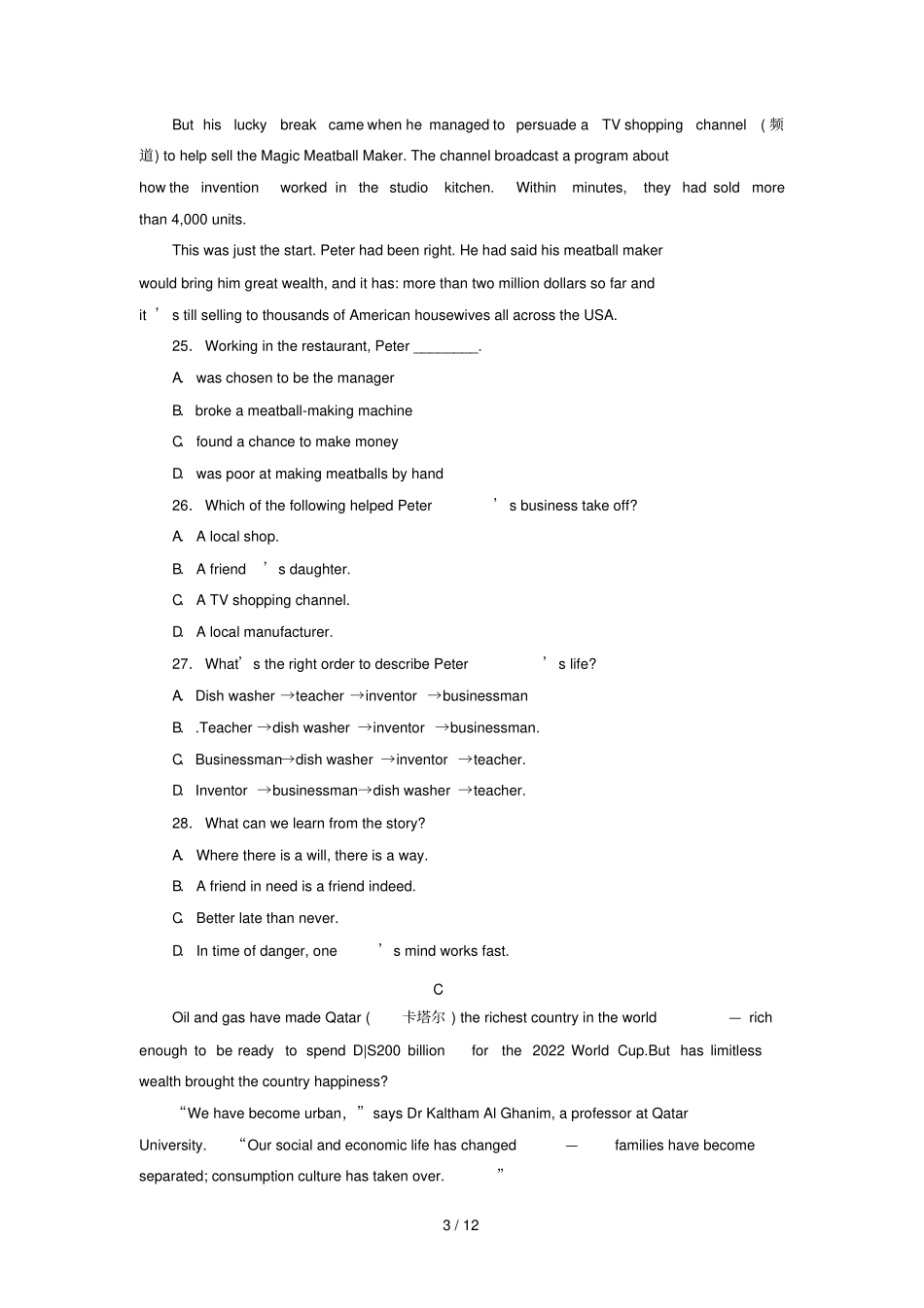1 / 12 河南省周口中英文学校2018-2019 学年高二英语上学期第一次月考试题第 I 卷(三部分,共70 分)第二部分阅读理解(共两节 20 小题;每小题2 分,满分 40 分)第一节(共15 小题;每小题2 分,满分 30 分)阅读下列短文 , 从每题所给的四个选项(A、B、C和 D)中 , 选出最佳选项,并在答题卷上将该项涂黑。A Brian Greene, a professor of physics and mathematics at Columbia University, has created an online science education platform. He tries to “build a bridge” with things you know about, and then “bring you across that bridge to the strange place of modern physics”.Recently I had a chance to ask Greene about wormholes (a hole which some scientists think might exist, connecting parts of space and time that are not usually connected), time travel and other mysteries of the universe. I asked him a million-dollar question: What if I went through a wormhole and prevented my parents from meeting? “Most of us believe that the universe makes sense,” Greene said. Although there are several interesting theories about time travel, he added, the laws of physics would probably prevent something so illogical from taking place. The good news is that the time paradox ( 悖论 ) is open for future physicists to solve. When asked how physics could become more exciting for kids, Greene said that books by Stephen Weinberg, Leonard Susskind, and other physicists, “make it a great time for people who want to learn about big ideas but aren’t yet ready, perhaps, to learn math.”When I pointed out that some students still might find physics boring, Greene said that the key is to teach them about things that are strange. “The basic stuff is important,” Greene said. “But I think it ’ s really important to also describe the more modern i...


